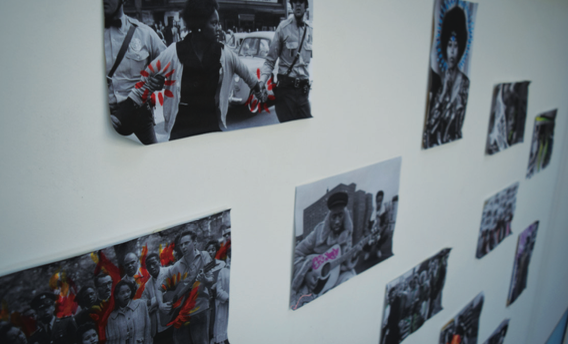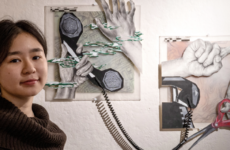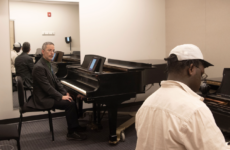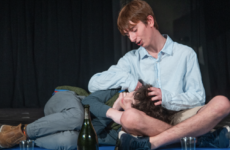If you’ve been to the Lanphier Center or elsewhere around campus lately, you’ve no doubt noticed a series of photographs posted on the walls, showcasing significant moments in history that have resounding effects on society today.
The student behind this political art requested to remain anonymous, saying, “I don’t want any of my projects to be about me, I want people to focus on the issues.”
Nevertheless, she explained what motivated her: “I was inspired by the political tension and dissent throughout the country. I think that, no matter where someone is on the political spectrum, human empathy is the most important thing. And it’s hard to elicit empathy for others through heated conversations where everyone just wants to be right.”
As an ArtsCon student and lover of art, the student decided to use visual arts to communicate her message. “I realized that the best way for me to say that was through my art, because it’s easier for people to look at images and come to their own conclusions,” she said. “If you see something that you’re against, there are a lot of ways to peacefully and creatively channel dissent and anger.”
The student began posting photographs during the climax of the 2016 U.S. presidential campaign race. While her art is now in almost every academic building on campus, she has always used Lanphier’s “blank white walls.”
Through her art, this student attempts to promote a welcoming and inclusive environment on campus. “Our campus is our home, and everyone should get to feel safe here,” she explained. “The current political climate is hard to live in, and we all need to remember that human rights should have a healthy amount of distance from politics.”
Her artistic process allows for creativity and exploration, saying “I typically like to think of a theme and start developing my project without keeping any rigid guidelines. It just kind of happens.”
“I love the art,” praised Amy Hagan-Brown ’18. “My favorite is the one of Lauryn Hill and Wyclef Jean. The colors pop out from the black and white, and the words next to them are powerful too.”
Suki Kalra ’18 agreed, saying, “When I talked about it with my friends, it was sending an inclusive message in face of all the political news. All the times when you’re walking up the stairs, it’s nice to see a message like that.”
She plans to continue her political art, with future projects focusing on Black History Month and the environment.






